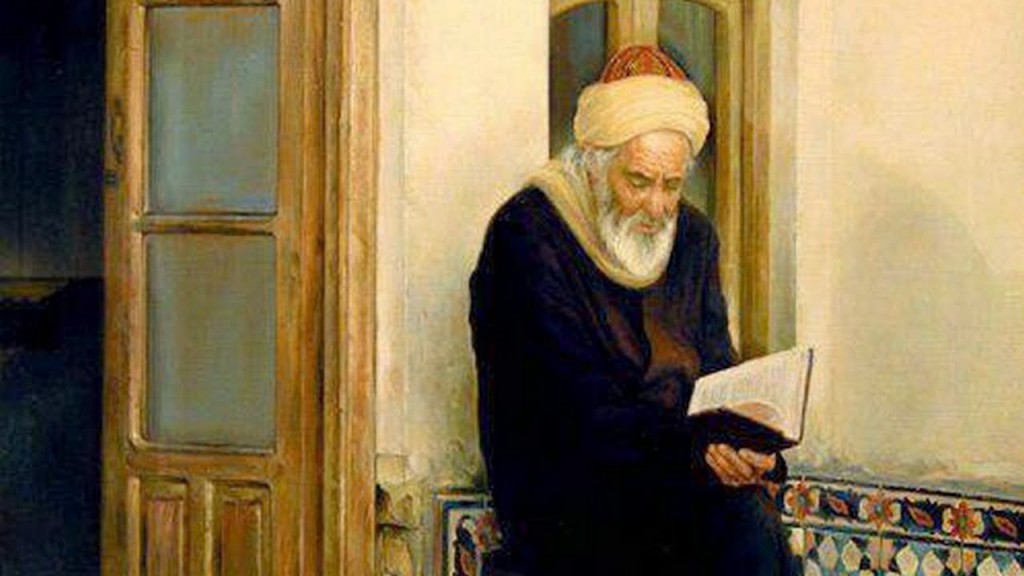On March 4-5, 2016, Zaytuna College hosted the Revisiting Al-Ghazali: Reason and Revelation Conference , which examined the work and contribution of one of the most influential scholars in Islamic history. Research papers and discussions revolved around a number of issues in Al-Ghazali’s works with an eye toward understanding and appreciating the unique approach present in his intellectual contribution and the reconciliation between reason and revelation. In the contemporary period and among Muslims, Al-Ghazali is often approached in debates concerning Sufism but his influence and contribution in Islamic law and jurisprudence is as critical and more impactful at his time as it is in the present period . Critically, Al-Ghazali is maliciously blamed for a supposed antagonism toward reason and free inquiry in Islamic tradition , an idea that was debunked by a number of scholars at the conference.
A number of papers focused on Al-Ghazali’s critique of philosophy and the tension between reason and revelation. Professor John Walbridge, author of the book, God and Logic in Islam: The Caliphate of Reason, discussed and systematically countered the charge that Al-Ghazali’s work was responsible for bringing an end to reason, rationality and science in the Muslim world. Islam’s scientific high point came almost 100-150 years after Al-Ghazali’s period, according to Professor Walbridge. If anything those who wanted to construct and problematize later development in the Muslim world found a convenient target in Al-Ghazali considering his critique of the philosophers but not taking into account that it was their discounting the centrality of metaphysics, which he disagreed with them on and not reason or rationality. As Orientalist and the students in the Muslim world began to construct a linear line to locate Muslim decline, Al-Ghazali’s rich contribution and centrality within the tradition was an easy target and he was someone to hold responsible. “Al-Ghazali genius” in President Hamza Yusuf’s view “is that he understood that the Formalists (Mutarassimun) were people who were trapped in the trappings of religion. Imam Al-Ghazali wanted to transcend those trappings and instead understand the meanings. The heart is the center of our tradition, and the heart is the center of the intellect; that is why Imam Al-Ghazali was deeply committed to reason.”
In the final roundtable among invited speakers, Professor Mustafa Abu Sway, Professor Marianne Farina, Professor Timothy Gianotti and Professor John Walbridge, a question was raised as to how best to approach Al-Ghazali’s work in our current period and, more importantly, the role of the intellectual in these difficult times. “Ask the students to write the Ihya’ ‘ulum Al-din (Revival of the Religious Sciences) for the current period” was Professor Mustafa Abu Sway’s pedagogical approach. In this way, the students think of the specific problems and needs of the contemporary period but grounding their ideas in a Ghazalian’s approach with knowledge being at the foundation.
The centrality of knowledge was the theme of Hamza Yusuf’s keynote address on the first day of the conference. “One of the great tragedies of modern civilization,” according to Hamza, “is the divorce of the heart from the intellect. Imam Al-Ghazali began his magnum opus, The Revival of the Religious Sciences (Ihya ‘Ulum al-Din ), with “The Book of Knowledge” (Kitab al-‘Ilm), which is proof that Imam Al-Ghazali understood that knowledge is the foundation of this religion.”
It is important to remember that Al-Ghazali’s arrival on the scene was at a critical period in Muslim history where fragmentation and strife were afoot and contending intellectual and political trends were at odds with each other. Al-Ghazali’s emergence came as chaotic conditions and prevalence of sectarian disputes made the need for a new intellectual voice at the Nizâmiyya Madrasa in Baghdad a foregone conclusion.
The Nizamiyya of Baghdad was the preeminent educational institution of its time. Likewise, Baghdad was at the crossroads of intellectual, political, economic, social and religious currents impacting the world. The center of the classical period and Islamic high civilization was Baghdad, the city of peace as it was known. Baghdad and the Muslim world at the time were experiencing power struggles and fragmentation, which Nizam al-Mulk thought would be remedied through educational institutions and Al-Ghazali being an important building piece in it.
Around 1095, Al-Ghazali entered into a crisis phase that had him leave his teaching post, a step akin to a senior dean of a university, like Berkeley, at the height of his career opting to leave and undertake a journey of spiritual discovery. Sufi teachings and possibly the influence of his own brother Ahmed, who was versed in the spiritual path, led Al-Ghazali to this sudden shift in lifestyle and a journey to Damascus and Jerusalem. The reasons for his departure, according to Frank Griffel, is that the “ethics and standards of a virtuous religious life while being in service of sultans, viziers, and caliphs weight heavily on Al-Ghazali.”
We are given an indication as to the reason for departing Baghdad in one of the vows that Al-Ghazali took during his visit to the city of Al-Khalil, the location of Prophet Ibrahim’s grave, and to “never to serve the political authorities or teach in state-sponsored schools.” Frank Griffel writes that Al-Ghazali “took the position that benefiting from the riches of the military and political elite implies complicity in their corrupt and oppressive rule and will jeopardize one’s prospect of redemption in the afterlife.”
The conference at Zaytuna College sought to revisit Al-Ghazali’s monumental contributions in order to engender deeper awareness of their sophistication and depth as well as to gain a renewed understanding of his works and his relevance to present context. Approaching Al-Ghazali’s scholarship in the framework of the prevailing conditions, debates, and challenges of his time can help contemporary readers navigate critical areas in his work that otherwise provoke narrow and unsympathetic readings. Indeed, Al-Ghazali’s critique of philosophy, and his reconciliation of Sufism and Orthodox Sunni Theology in classical period should inspire current scholars to find and renew their approaches that might resolve the contemporary and visible contradictions.


